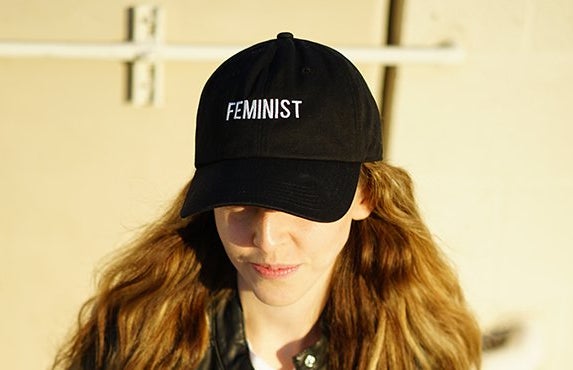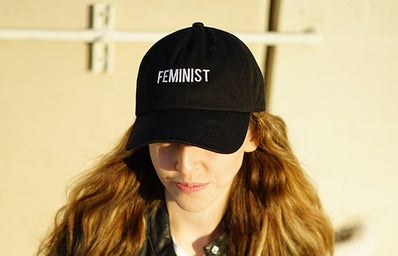Last month, Gillette dropped its The Best Men Can Be ad, and, unsurprisingly, the internet got in a fight over it. Many claimed that it was another example of the left putting down and demonizing men. Others applauded the ad and its statement on toxic masculinity. There have already been numerous takes on the ad and the validity of its message, so I won’t get into whether it’s worth all the praise and outrage that has been thrown at it. This ad is only the latest example of a growing trend in marketing, where more and more corporations are endorsing liberal social causes, or becoming “woke”. In fall 2018, Nike made headlines when they centered their latest ad campaign around Colin Kaepernick, an NFL player who famously took a knee during the national anthem to protest racial inequality. Clothing brands like H&M and Forever 21 sell t-shirts that proudly say “FEMINIST”.
It’s great that brands are jumping on the “woke” bandwagon, isn’t it? If the population of “woke” Americans is the one they want to cater to, it must mean we’re a stronger force than the “un-woke” people. It means the causes we stand for are becoming more and more welcomed. Gillette, Nike, and others like them are on the right side of history.
Aren’t they?
Unfortunately, it isn’t so simple. We need to be wary of this corporate wokeness, because most of the time, it’s just a selfish ploy to get more consumer dollars, not a genuine attempt to create meaningful change. The companies who try to project this socially conscious image are often involved in serious oppression themselves. Procter & Gamble, Gillette’s parent company, has been accused by Amnesty International of sourcing palm oil from Indonesian plantations where laborers work under abusive conditions. Amnesty International’s investigation at these plantations uncovered child labor, low wages, and hazardous physical tasks.
Nike, too, has had a long history of controversy when it comes to human rights violations, having been accused of using sweatshop labor since the 90s. Although the company has made progress since then, their supply chain still isn’t free of abuse today, as more allegations surfaced around the same time they released their Kaepernick ad. In a Cambodian factory that supplies Nike, as well as Puma and Adidas, over 500 workers were hospitalized after fainting from hunger and heat exhaustion due to working long hours.
H&M also utilizes Cambodian factories with similar conditions, where many children illegally work and employees are sometimes outright denied their pay if they can’t meet unrealistically high quotas for sewing shirts. Almost all of the workers in these factories are women. Forever 21 has also been linked to exploitative labor practices.
These 4 brands are hardly the only household names who profit off of questionable, and often outright criminal, behavior. But they are some of the biggest examples of companies catering to a young, liberal audience. The problem, of course, is that the veneer of “wokeness” hides an ugly dark side. Procter & Gamble has no business encouraging men to be “the best they can be” when they contribute to the hardship of men, women, and children across the globe. Nike has no business calling out inequality in America when they utilize societal inequality in third-world countries to get cheap labor. H&M and Forever 21 have no business selling “FEMINIST” t-shirts when these same shirts are sewn by poor, overworked women.
Does this mean that we shouldn’t have conversations about toxic masculinity, or racism, or feminism? Of course not. The points these ads make, in and of themselves, aren’t bad. But we have to be wary of letting corporations, whose main motivation will always be to make money, into these conversations. Although it’s possible for corporations to be ethical and to genuinely support good causes – Ben & Jerry’s is a prime example – this is not the case for most. When companies superficially endorse liberal values, people can be tricked into viewing buying a t-shirt or a pair of shoes as a sort of activism. But as we’ve seen, consuming these products often fuels oppression rather than fighting it.
These companies are content to let their “wokeness” be only surface level because they get to have it both ways – they can continue to profit off of injustice while also drawing the admiration (and money) of young people who try to support justice. But we have to do better and make sure our activism goes beyond that surface level. Try searching out guides to ethical shopping, such as this one, and don’t let large, powerful companies conflate buying their products with being truly progressive. All this isn’t intended to shame or guilt anyone for buying from these brands. I’ve shopped at Forever 21. I wear Nike shoes. The system in which so many products are produced is so complex that it can be impossible to know just where the products came from, or how the people who made them were treated. But we have to try our best so that our wokeness is more than just performative, more than just nice words, and more than just a product. If it isn’t, we’re not really woke, after all.


